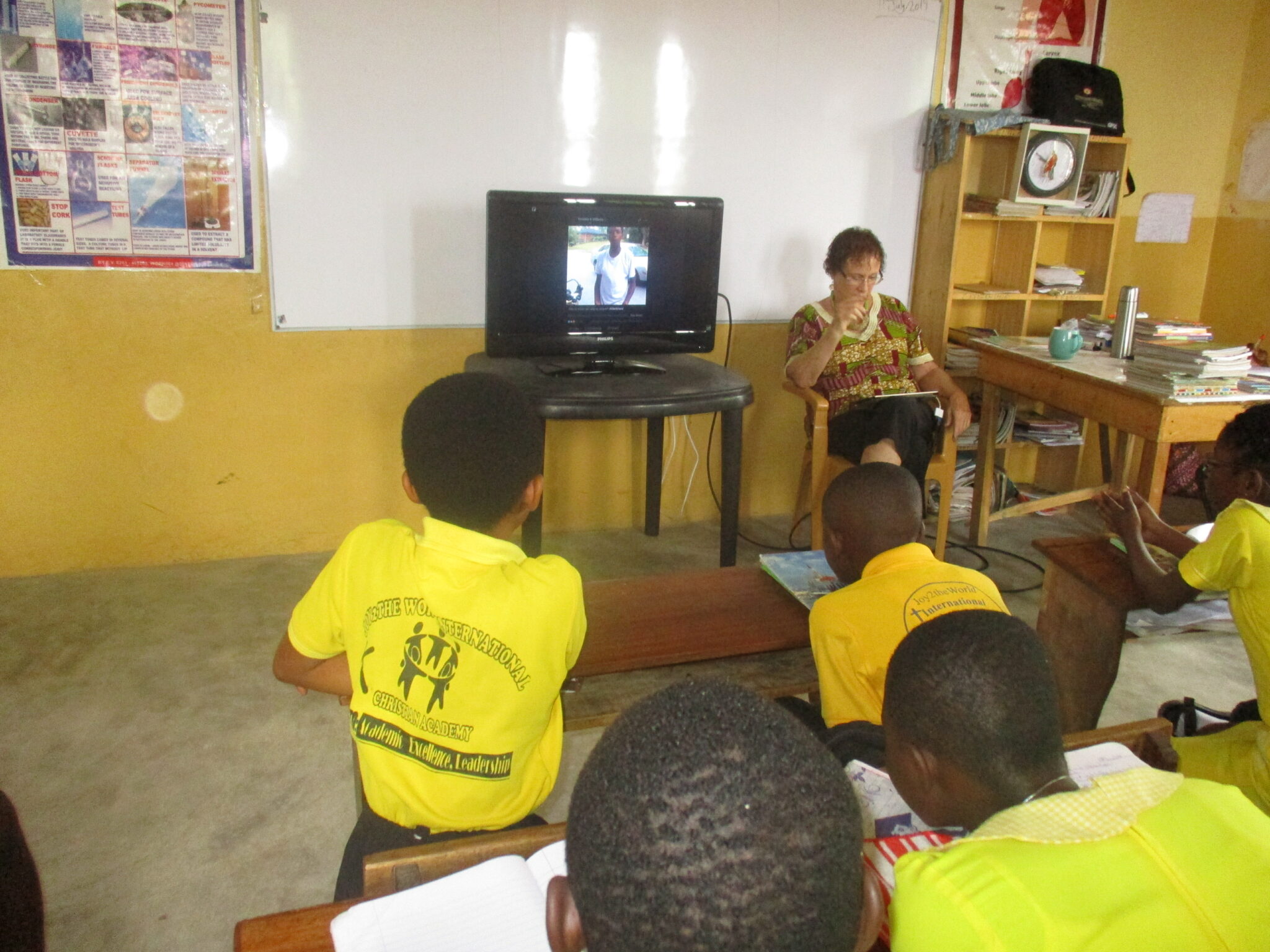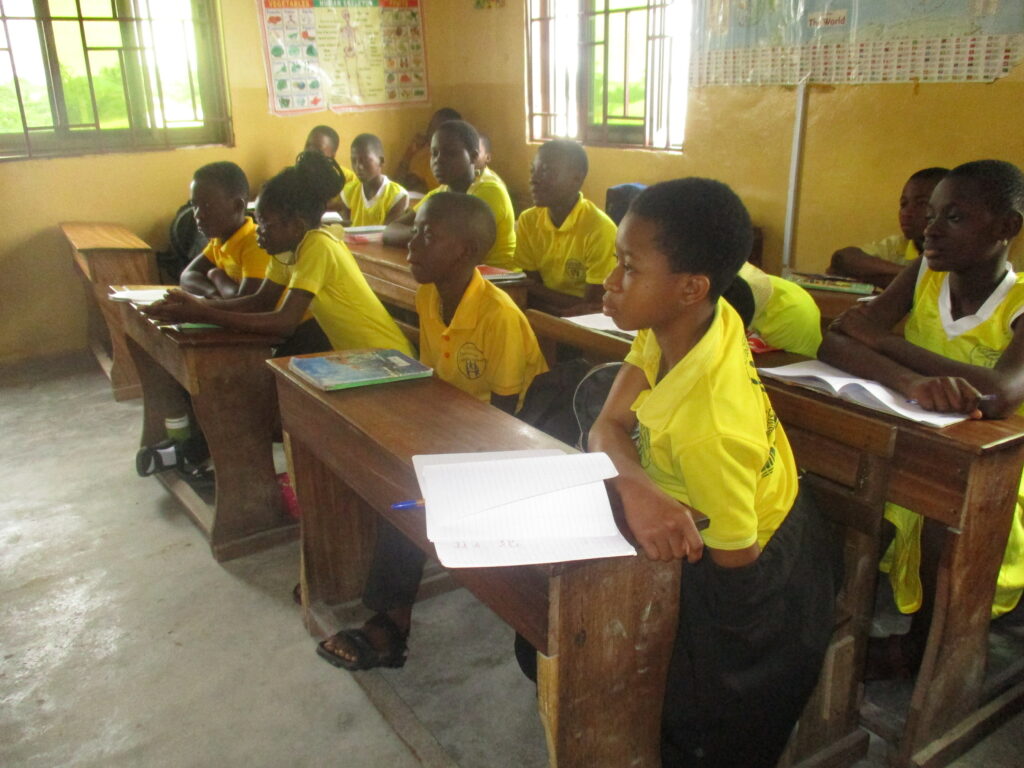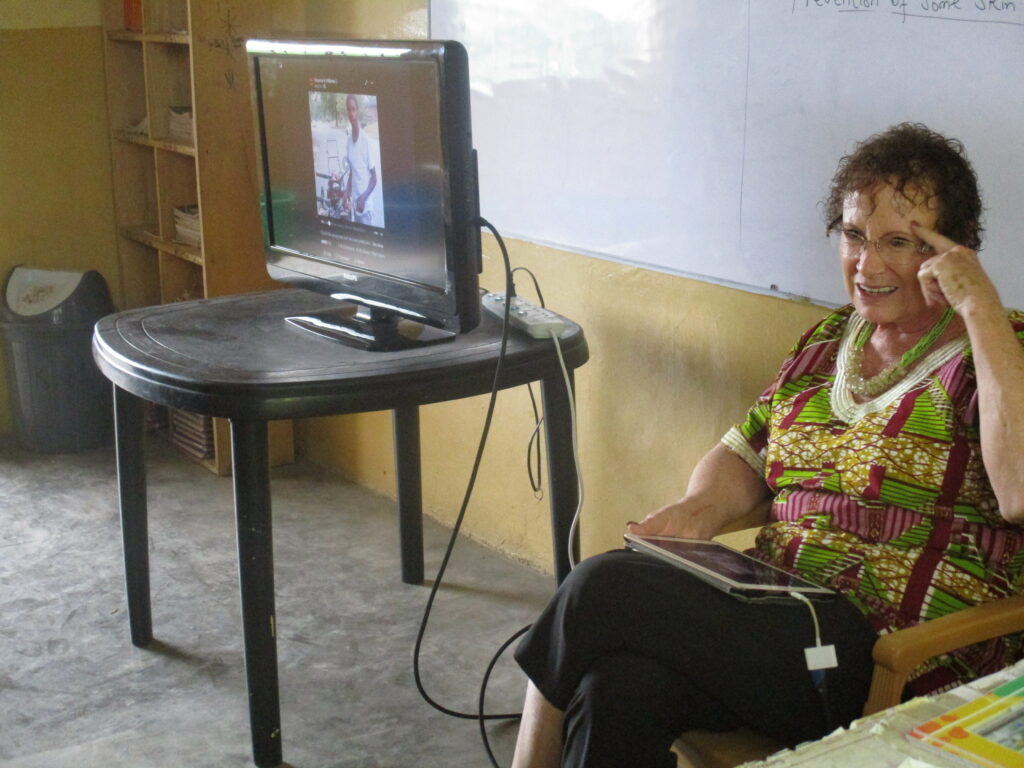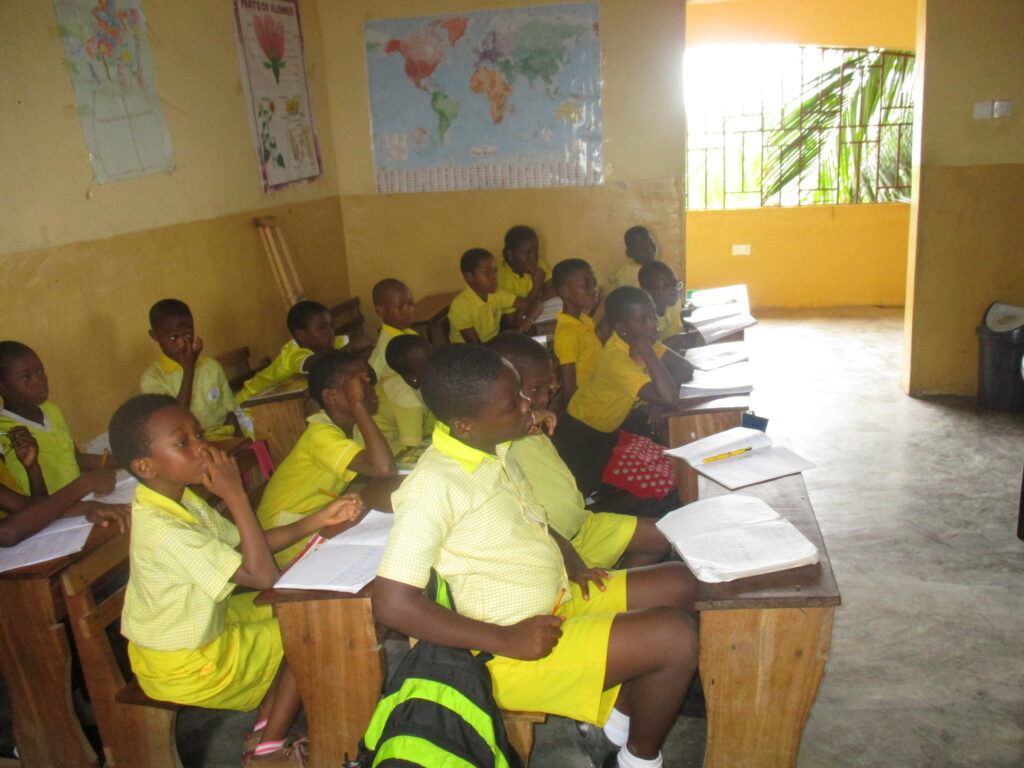
I teach 2 days each week in P3, P4 and P5. I don’t teach math, science or French; not even English. I leave that to our great teachers.

For the most part (98%), my students live in very meager homes with few modern amenities such as plumbing, water and electricity….or PCs. When the students go home, they must begin a set of chores such as fetching water. And as with all families around the world, the kids have their usual chores plus completing their homework. Those with electricity might have one television. Thanks to technology, it seems all parents have a phone, very few parents (1%) have a smart phone. Most listen to the news on a radio.
If you think about how we learn about the world, we are barraged with the news from TV and the internet. Many of us listen to podcasts or watch YouTube.
So, my classes consist of discussions and conversations about what is going on in the news; sometimes about Ghana news (I subscribe to GhanaJustice.com) and sometimes about world news.

I can tell you that in spite of my students’ living conditions, they can carry on a relatively intelligent conversation about what is happening in the world. Of course, P3 takes a light weight approach, but P4 and P5 have discussed a great deal.
It is a lesson in critical thinking as we share opinions as well. For me, it is fascinating to watch the depth of learning and questions at each level. What they can digest, what is interesting to them and what they develop on their own. Of course, P3 might get a few ideas but much of their hour includes my Facebook array of “cats and dogs” videos.

P4 is interested in local news (the gossip news about a local pastor or sporting event). They are great at vocabulary lessons but applying the words to other similar situations in the news is limited. Their questions are endless as they try to understand how something happened vs. why it happened. That recent article about the Nigerian who fell from an airplane and died in the U.K., they weren’t interested in why he was escaping without a ticket, passport, visa or yellow medical card. But they wanted to know how did he sneak onto the plane? How did he die? (This was a news story they brought in to discuss.)
P5 is more thoughtful, concerning, opinionated.
Why do we persist in these lessons? Because our students will one day have the opportunity to attend a university or college either here in Ghana or out in the world. They know that their education is necessary to break their cycle of poverty and to be the future of Ghana. They will need to include their own culture of course, but they also need to be aware of the world around them.
So we had lots of heavy lessons this year. The year started as we learned about the U.N. and all the great work they do to help Africa. We studied the U.N. history, created to keep peace after WWII. We learned the U.N.’s SDGs designed to help Africa grow in strength.
Our students memorized the SDGS as well as the U.N.s “Human Rights for Children”. We learned a little about Hitler and the Holocaust (through the Diary of Anne Frank) and imagined what life is like without human rights. We “travelled” to North Korea and China (discussing their lack of human rights) as current events hit the news. We ended with the U.N. promoting abortions in Africa (a project of Melinda Gates and UNICEF). And they asked me “what about a baby’s human rights…the Right to Life”? So today we talked about leaders at the top having to make very important and sometimes difficult decisions. It can be complicated. (very little of this is discussed in P3)
We learned that we are all ultimately imperfect humans aiming to be our best and we must be educated and skeptical (not gullible) using critical thinking to be good citizens (voting for the right people, whoever they are, in the years to come).
There is evil in the world and we must be educated and discerning. We know there are good people as well. We learned about how perception can colour one group’s opinion while creating clarity for another. The word “protest” has both positive perceptions for some while negative and violent for others.
We also learned about the Seven Capital Sins and how we can use our knowledge of these to manage our lives. For example, being angry (wrath) is not bad (a “0” on the scale) but if we let our anger slide into revenge or violence, we are headed in a very bad direction (Capital Sin)… we can choose to stop our anger before it gets us in trouble. Likewise, lust, envy, pride, sloth, greed and gluttony.
Plus lots of “cats and dog” videos on YouTube.
